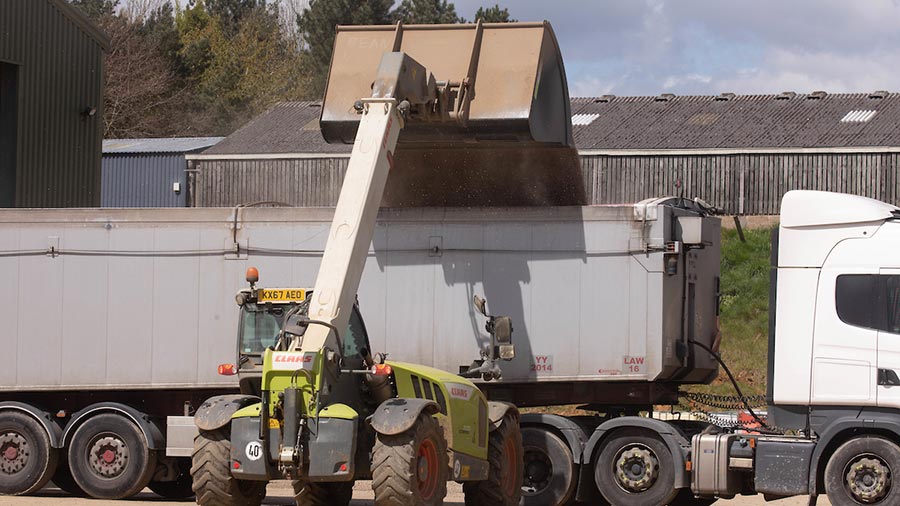NFU and NFUS pull support for digital grain passports
 Loading a grain lorry from on farm gran storage
Loading a grain lorry from on farm gran storage The NFU has decided it will not support the progression of digital grain passports in their current format, after carrying out member surveys and discussions with its regional crop boards.
The news comes just days after an industry-wide consultation closed on the business case for implementing a digital alternative to paper grain passports.
See also: Group of merchants team up to oppose digital grain passports
The NFU crops board had previously said it would support a digital passport on the proviso that a number of key principles were met, including providing real-time quality feedback and offering a genuine benefit to growers.
A statement on the NFU website said: “A critical benefit of a digital passport for our members is the transparency and efficiency that immediate feedback of sample data at intake would deliver for their farm business. This must be guaranteed, not simply an ‘expectation’ as stated in the business case.”
The NFU feels that a number of practical challenges remain and its members have raised further concerns with the cost of the system, risk of cyber attacks, and a perceived lack of flexibility.
After these findings, the NFU combinable crops board concluded that while it would continue to support the principle of a digital passport, it was vital the concerns were addressed.
‘Broadly unsupportive’
NFU Scotland (NFUS) has been more outspoken against the project, having first challenged the proposal of digital grain passports in November 2022.
After consulting with its membership, it found farmers broadly remained unsupportive of digital passports being introduced.
Gemma Cooper, head of policy at NFUS, said: ‘We understand the need to move with the times on data recording and systems in agriculture.
“However, in this case, our members felt overwhelmingly that the proposals would be difficult to work with in practice.
“The current paper-based system seems to work well for farmers and merchants because it is simple and cost-effective.”
NFU Scotland’s combinable crops committee chairman Willie Thomson added that the union remained unconvinced that moving to a digital system would be better than a paper system, and that its members did not feel that it would be a positive move for industry.
A statement issued on behalf of the Digital Grain Passport Leadership Group said the consultation had provided invaluable feedback.
Several hundred responses had been received from a mix of growers, hauliers, merchants, and processors.
It said: “The discussion and feedback included challenging the assumptions and figures on which the business case was based.
“The main topics of feedback centred on the usage and process of the proposed system, with a focus on connectivity and availability of devices. A range of views were also gathered on the proposed costs and benefits of the system.”
The feedback will now be collated and analysed and the industry development and data groups are due to meet in early March to review it, discuss necessary changes and add more detail where required.
It concluded: “Once this refining process is complete and the business case renewed, the leadership group will decide on next steps and how they wish to proceed.”
